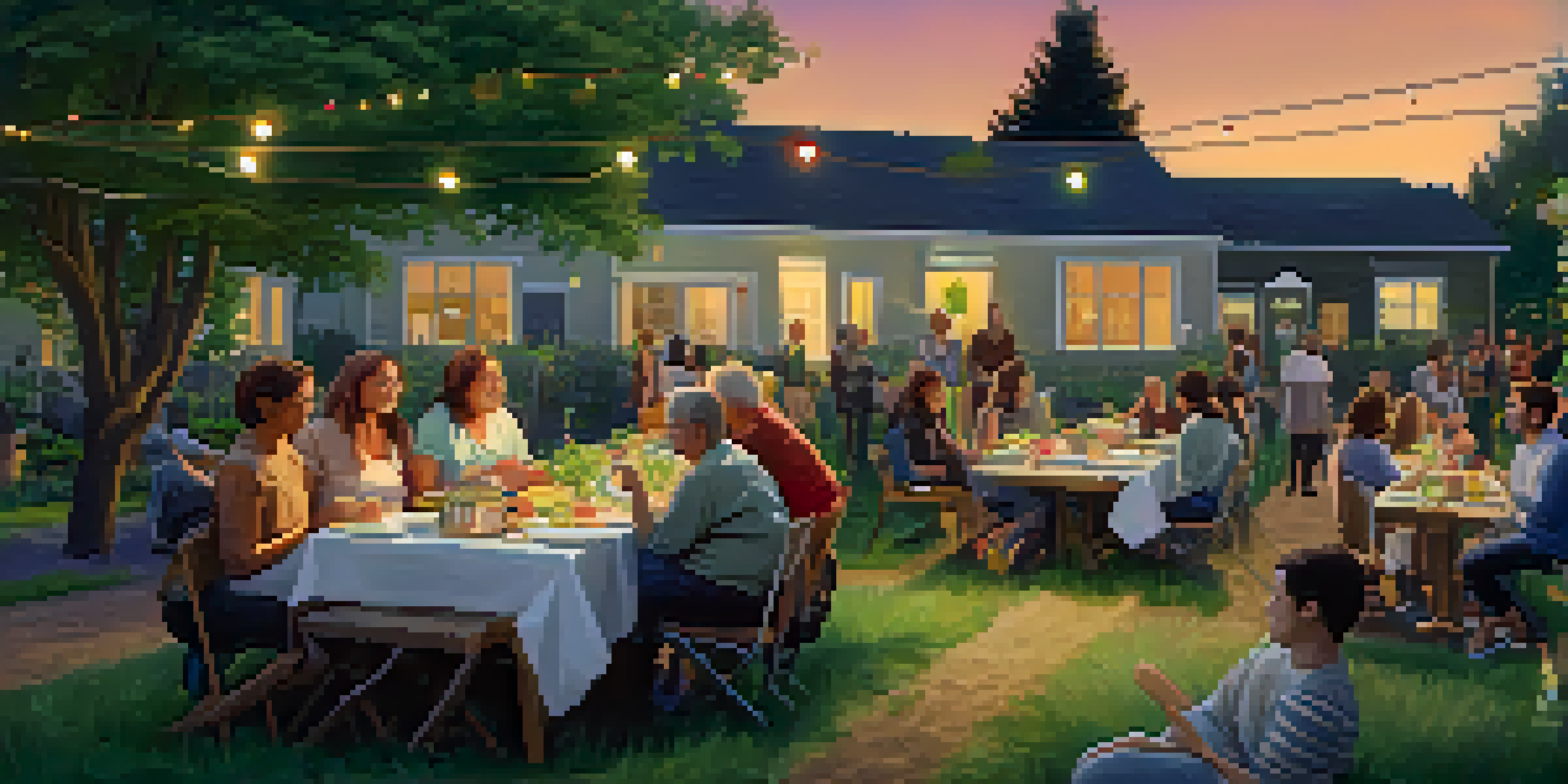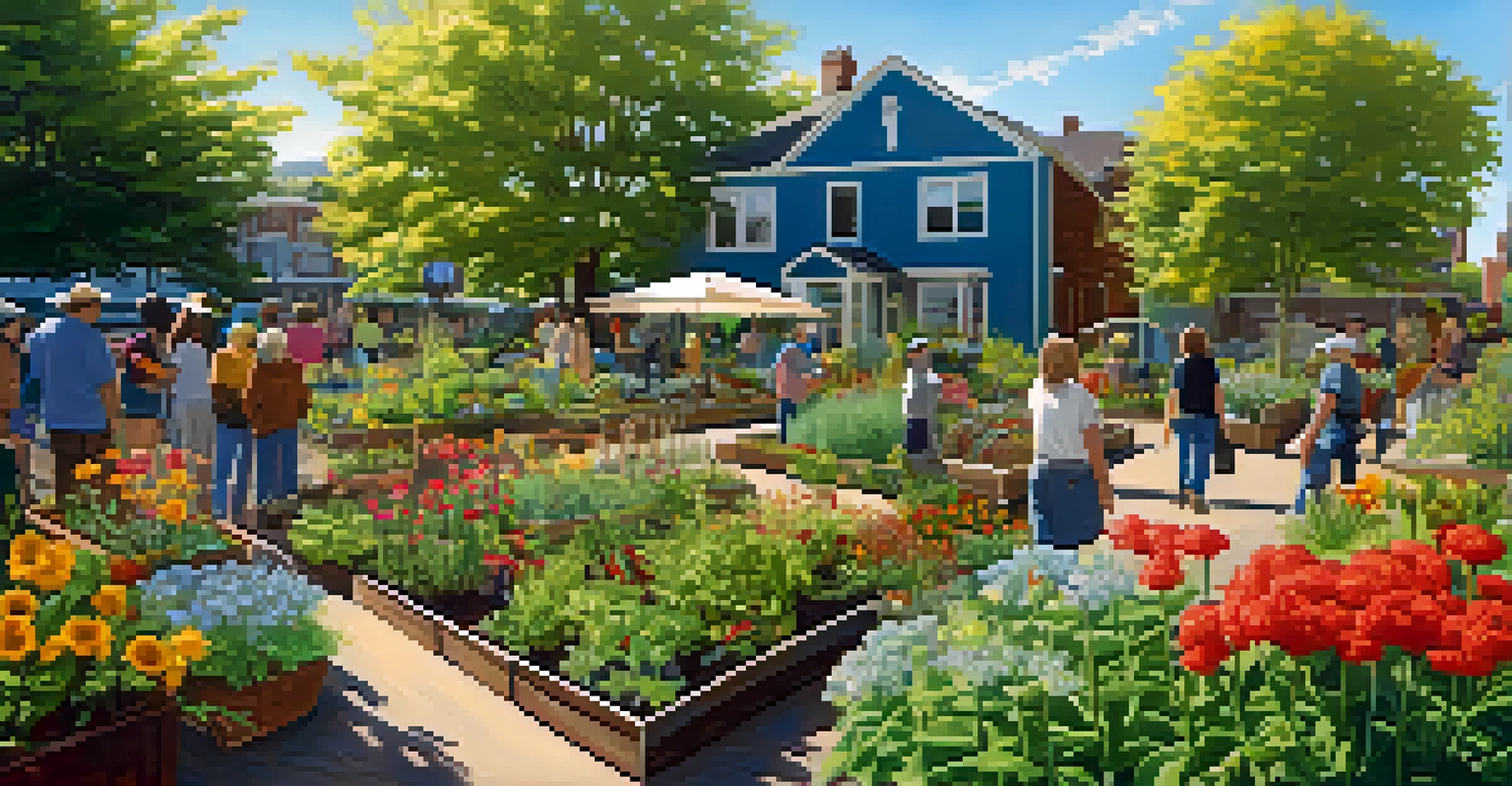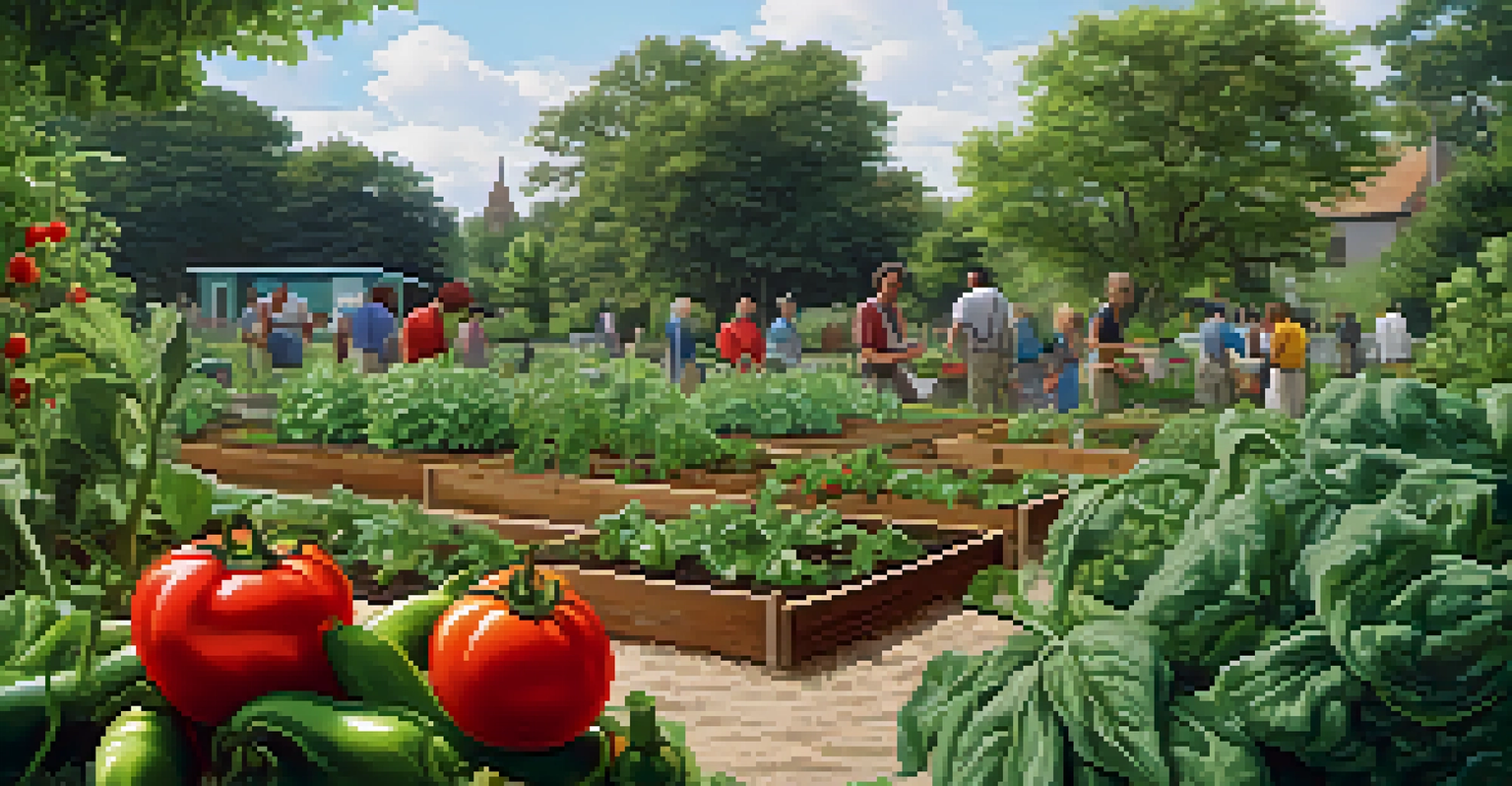Community Gardens: A Symbol of Portland's Activism

The Rise of Community Gardens in Portland
Portland has seen a remarkable increase in community gardens over the past decade, becoming a hub for urban agriculture and sustainability. These gardens serve not only as green spaces but also as platforms for community engagement and activism. With the city's commitment to eco-friendly practices, these gardens have flourished, transforming once-neglected plots into vibrant areas of growth.
Gardening adds years to your life and life to your years.
Many residents have embraced the idea of gardening as a means to connect with their neighbors and the environment. It’s not just about growing food; it’s about cultivating relationships, fostering a sense of belonging, and taking collective action. As more people participate, the community gardens have become microcosms of Portland’s progressive values.
Moreover, these gardens reflect a growing awareness of food justice and accessibility. By creating spaces where individuals can grow their own produce, Portland’s community gardens challenge the status quo of food deserts and promote self-sufficiency.
A Hub for Activism and Education
Community gardens in Portland are more than just places to plant seeds; they are vibrant hubs for activism and education. Many gardens host workshops and events that teach sustainable gardening practices, cooking classes, and discussions on local environmental issues. This educative aspect empowers community members to make informed choices about food and sustainability.

Additionally, these gardens often serve as venues for activism, where individuals can rally for causes they believe in. Whether it’s advocating for policy changes or raising awareness about social issues, these green spaces become fertile ground for ideas and movements. The collaborative spirit fostered in these gardens strengthens community ties and amplifies voices.
Community Gardens Foster Connections
Portland's community gardens create a sense of belonging and collaboration among residents by bringing diverse individuals together through shared gardening experiences.
By engaging in educational programs and activism, participants not only nurture their gardens but also their social conscience. It illustrates how community gardens can be a catalyst for change, fostering a culture of engagement and responsibility.
Promoting Food Security in Urban Areas
Food security is a pressing issue in many urban areas, and Portland's community gardens play a pivotal role in addressing this challenge. By providing fresh produce in neighborhoods that may lack access to grocery stores, these gardens help combat food deserts. Residents can enjoy the benefits of nutritious food right from their backyards.
The best way to find yourself is to lose yourself in the service of others.
The act of growing food empowers individuals and families, allowing them to take control of their diets and health. Community gardens offer a sustainable solution to food scarcity while fostering self-reliance. This initiative not only improves physical health but also enhances mental well-being through the therapeutic effects of gardening.
Moreover, community gardens often donate surplus produce to local food banks, further supporting those in need. This generosity illustrates the interconnectedness of community members and highlights the spirit of collaboration that defines Portland.
Building Community Connections Through Gardening
One of the most beautiful aspects of community gardens is their ability to bring people together. Neighbors often meet for the first time while tending to their plots, sharing tips, and swapping stories. This camaraderie fosters a sense of belonging, bridging gaps between diverse populations and creating a supportive network.
In a city known for its progressive ideals, community gardens exemplify the importance of collaboration and inclusivity. They provide a space where people from different backgrounds can unite under a common goal—growing healthy food and nurturing relationships. This shared experience cultivates understanding and respect among community members.
Gardens Promote Food Security
These gardens play a crucial role in addressing food deserts in urban areas by providing residents with access to fresh produce and promoting self-sufficiency.
Furthermore, these gardens often host social events that strengthen these bonds. From potlucks to harvest festivals, these gatherings celebrate not just the produce grown but the community itself.
The Role of Local Government in Supporting Gardens
Local government plays a crucial role in the success of community gardens in Portland. By providing resources, funding, and land access, the city helps cultivate these flourishing green spaces. This support underscores the government's commitment to sustainability and community welfare.
Programs such as the Portland Parks and Recreation's Community Garden Program illustrate how local initiatives can empower residents. These programs often offer grants and technical assistance, making it easier for communities to establish and maintain their gardens. This collaboration between citizens and local authorities enhances the gardens' impact.
By prioritizing community gardens, local government not only addresses food insecurity but also promotes environmental stewardship. These gardens become symbols of a city working together towards a common vision of health and sustainability.
Challenges Facing Community Gardens Today
Despite their many benefits, community gardens in Portland face several challenges that threaten their sustainability. Issues such as funding cuts, land use conflicts, and urban development pressures can hinder the growth and maintenance of these vital spaces. Community members must remain vigilant to protect their gardens from these external threats.
Moreover, as more people flock to urban areas, competition for land becomes increasingly fierce. This can make it difficult to secure long-term leases for garden spaces. The community must advocate for their gardens, demonstrating their value not just as green spaces but as essential resources for health and community cohesion.
Local Government Supports Growth
Portland's local government enhances the success of community gardens through funding, resources, and programs that empower residents to establish and maintain these vital green spaces.
Additionally, maintaining engagement and participation can be a challenge as well. As life gets busier, sustaining interest in gardening requires creativity and commitment from community members. Finding ways to keep enthusiasm alive is crucial for the ongoing success of these gardens.
The Future of Community Gardens in Portland
Looking ahead, the future of community gardens in Portland seems promising, especially with the growing interest in sustainable practices. As more residents become aware of the importance of local food systems, community gardens will likely continue to thrive. This momentum can foster even more innovation and collaboration within the community.
Emerging technologies, such as hydroponics and vertical gardening, may also reshape how these gardens operate. Integrating modern practices with traditional gardening techniques can enhance productivity and sustainability, making community gardens even more valuable resources for urban dwellers.

Ultimately, as Portlanders continue to nurture these green spaces, they are also nurturing their sense of community and activism. The future of community gardens embodies the spirit of collaboration, resilience, and a commitment to creating a healthier, more connected city.